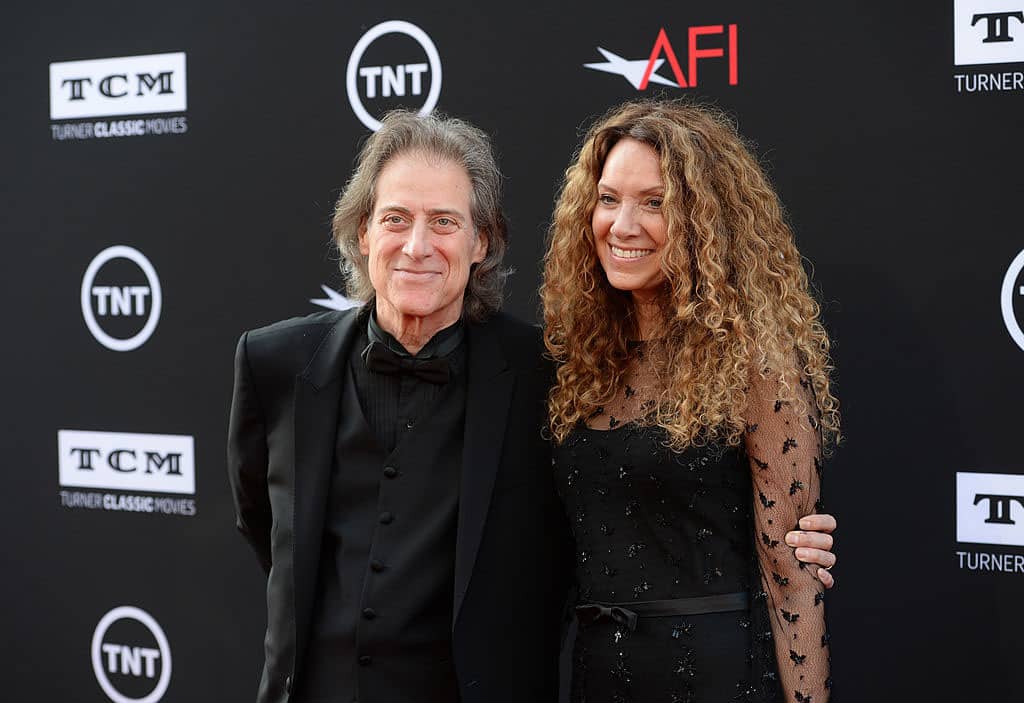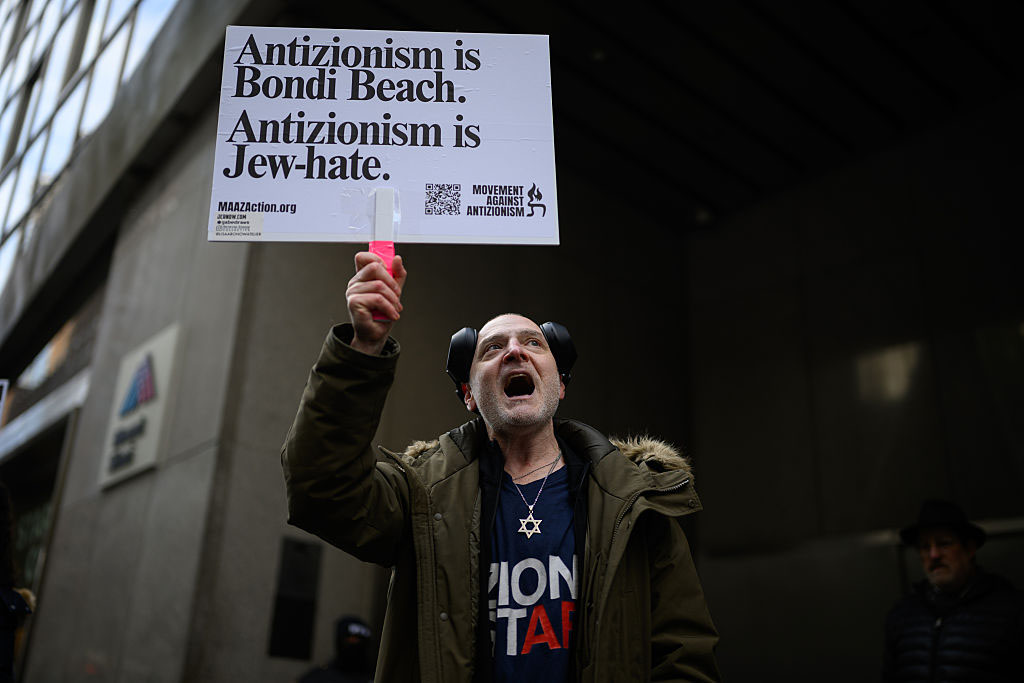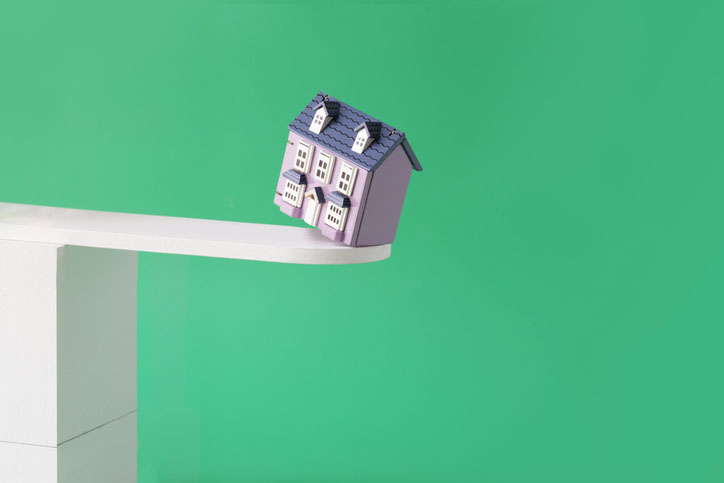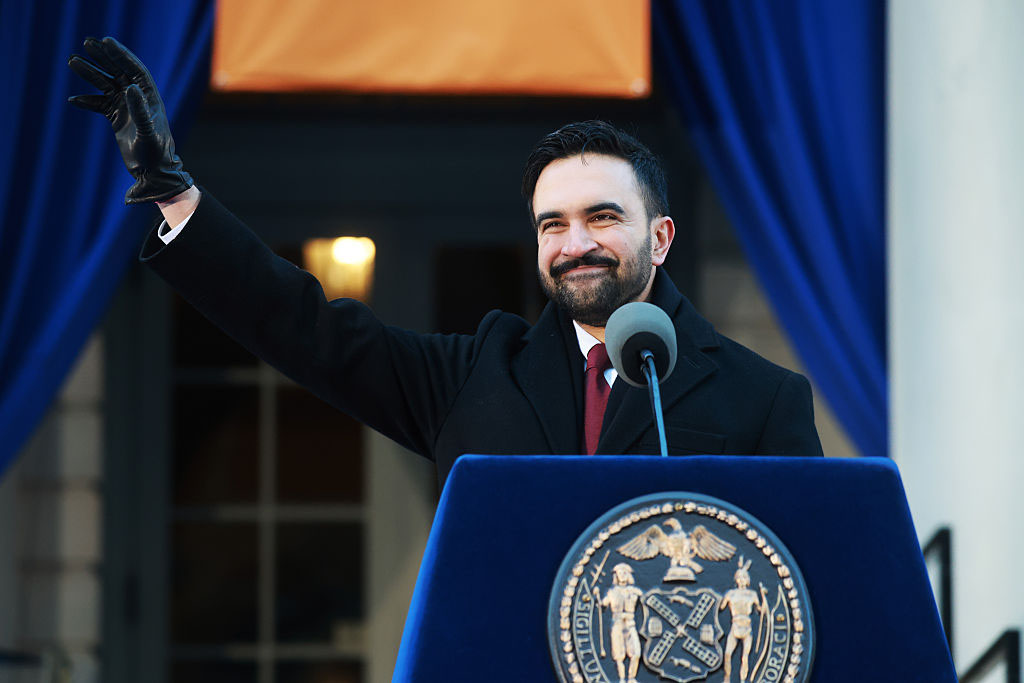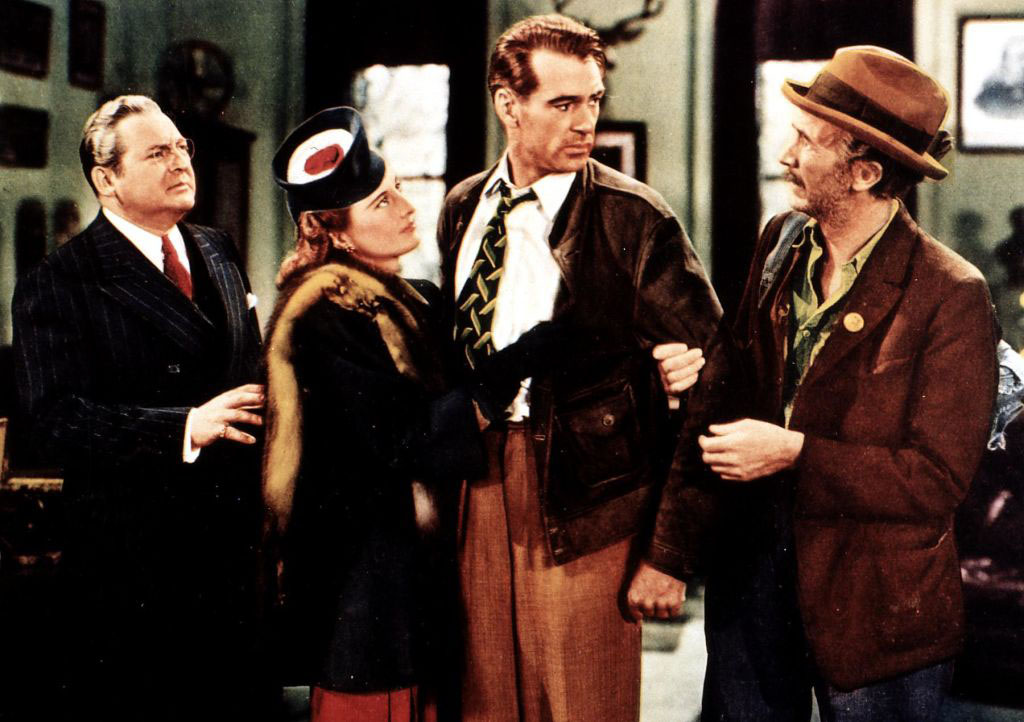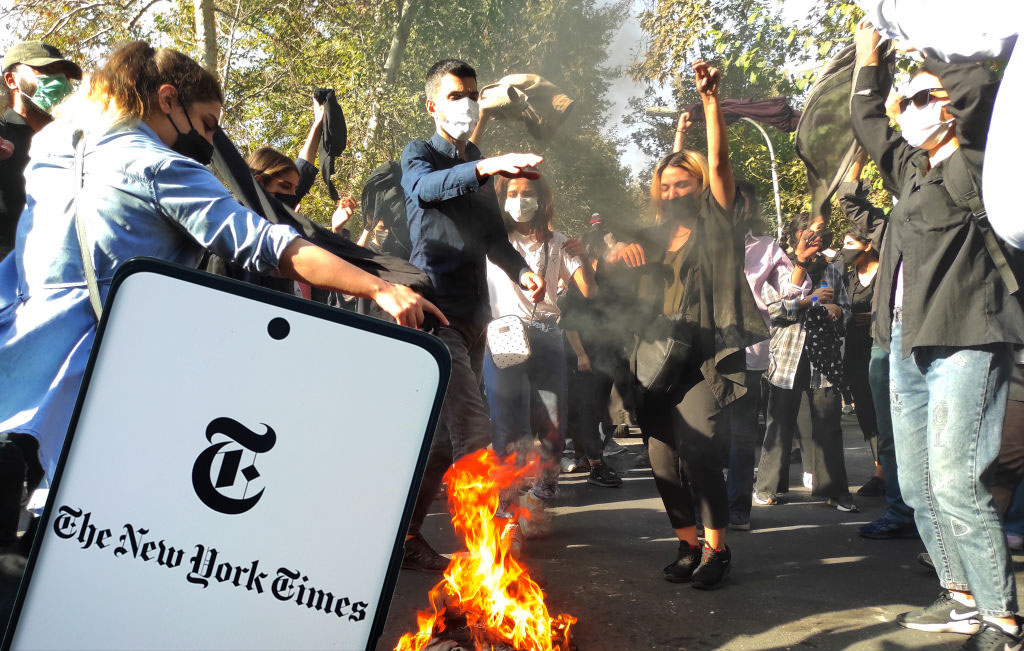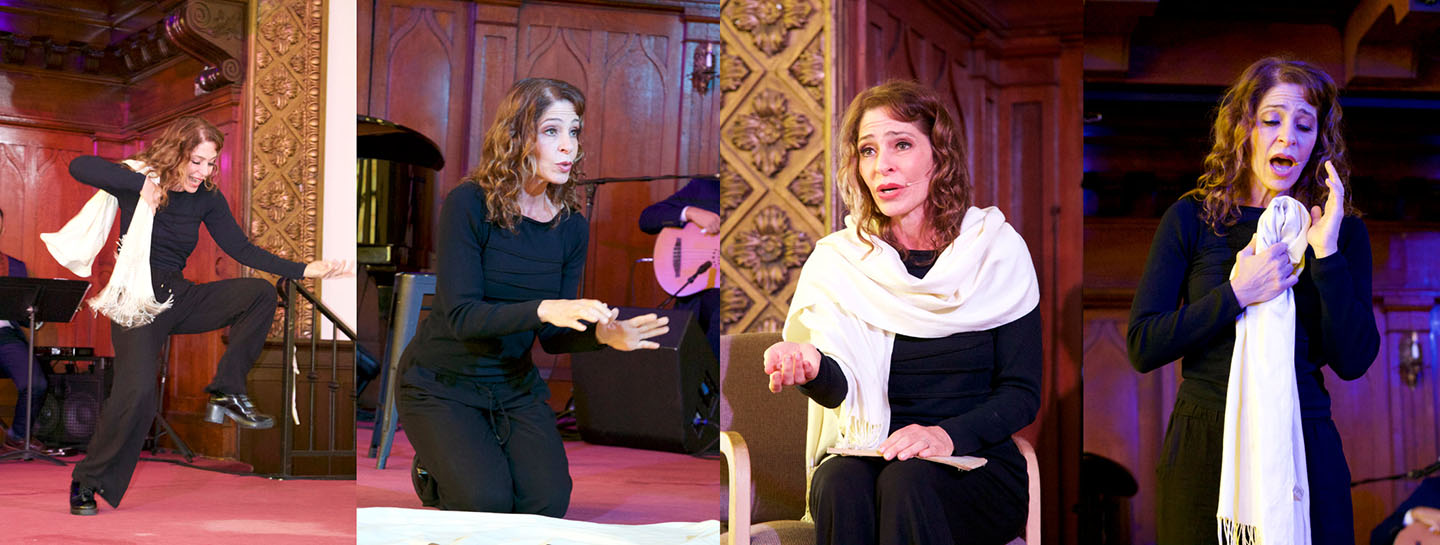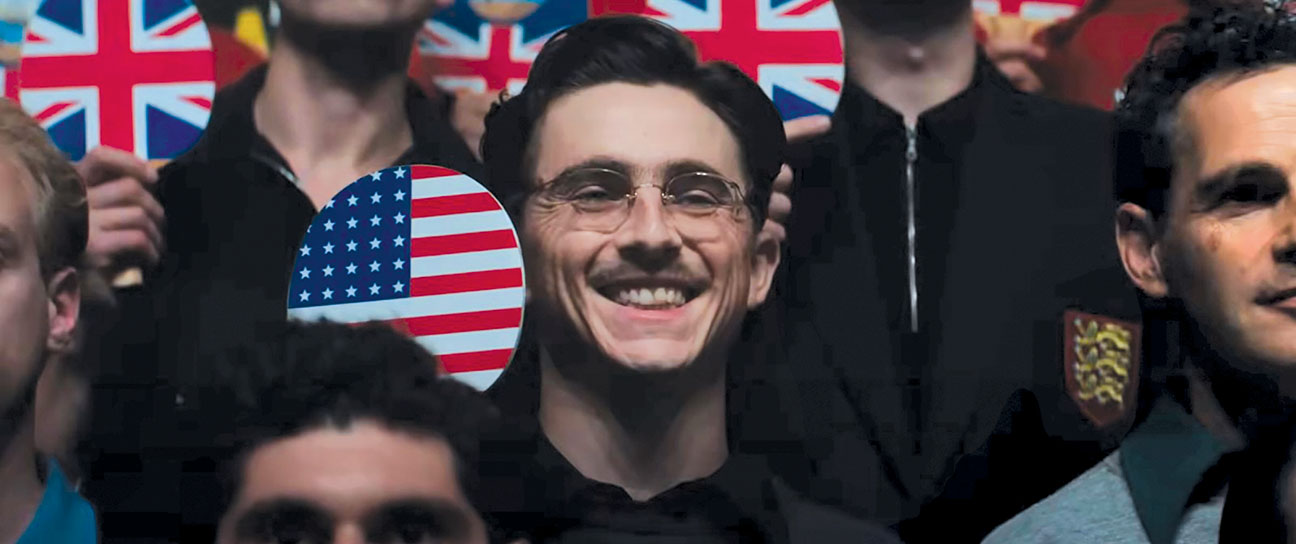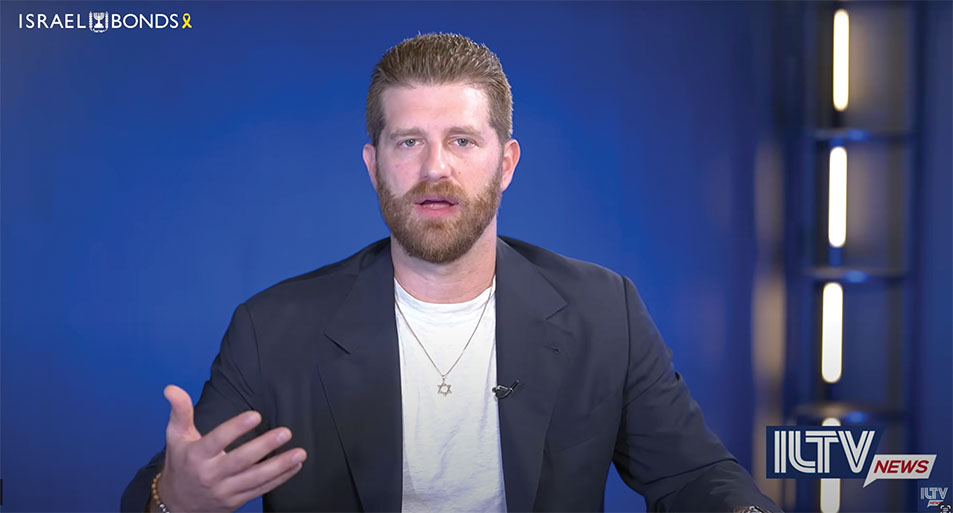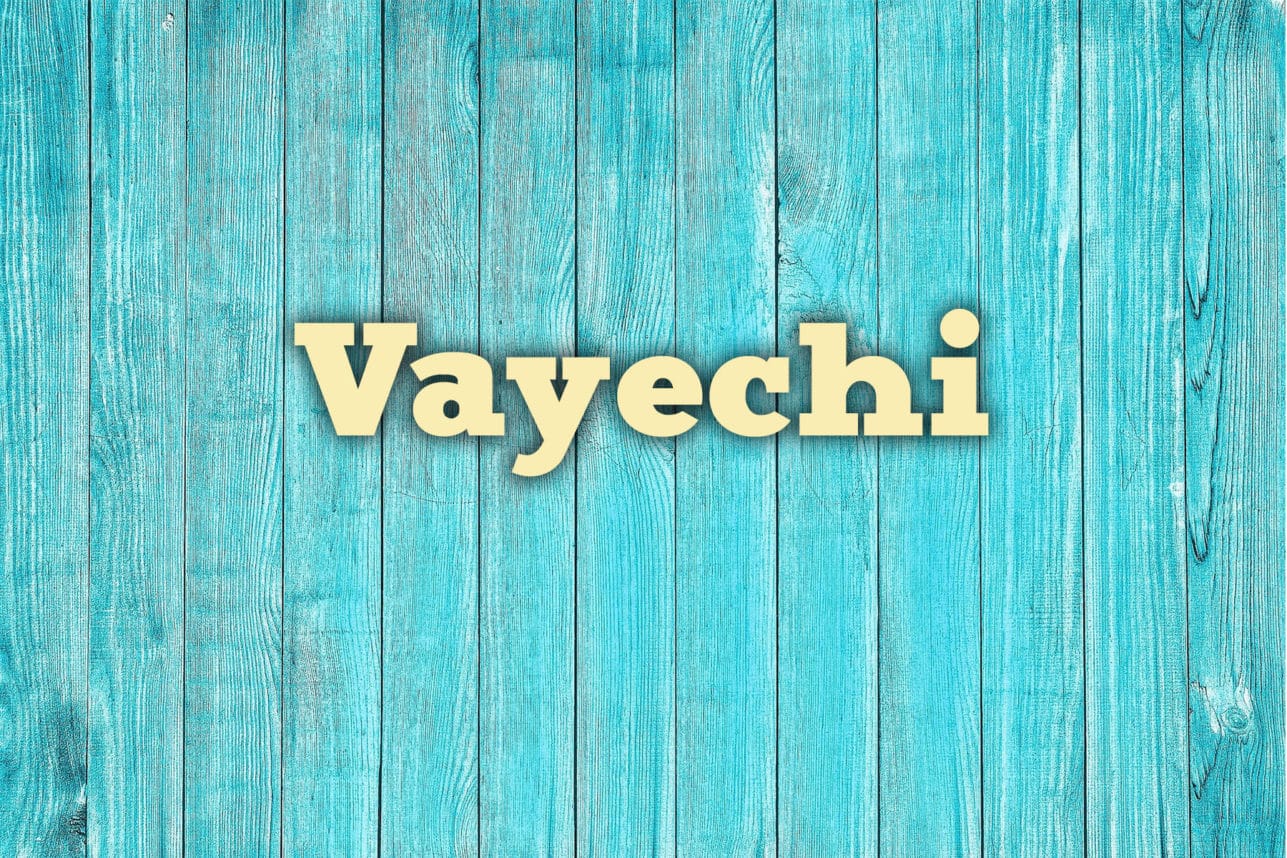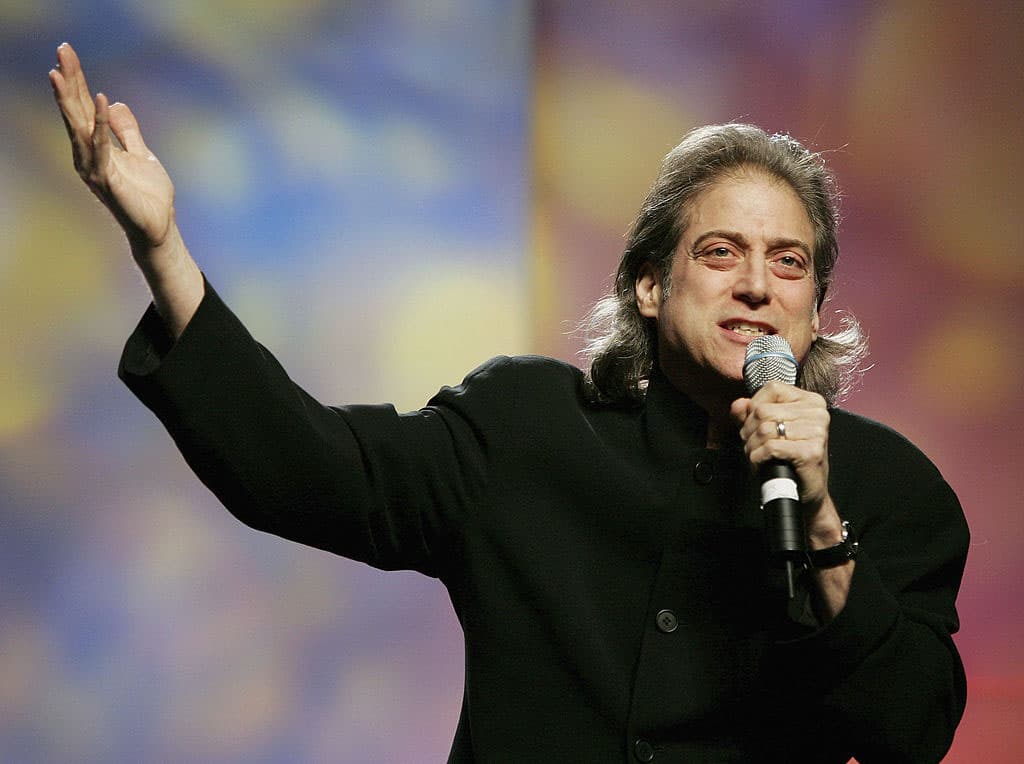
Comedian Richard Lewis died Feb. 27 from a heart attack at the age of 76. He spent over 50 years in show business, from standup comedy specials to unforgettable recurring episodes of “Curb Your Enthusiasm.”
Born on June 29, 1947 in Brooklyn, New York, Lewis was raised in Englewood with his parents. Bill and Blanche. His brother Robert and sister Janet were both much older than him, which is why he would often refer to himself as a “mistake child.”
In the book “I’m Dying Up Here,” author William Knoedelseder wrote that the age gap between Lewis and his siblings led to a period of isolation in his life that would shape his comedy. Lewis recalled bonding with his parents while watching “The Honeymooners” on television. In a 2017 interview, Lewis remembered being as young as five years old, feeling his affinity for comedy develop while watching Mel Brooks, Carl Reiner, Jonathan Winters, and Lenny Bruce on television The principal of his high school told him “Richard Lewis, you are the troublemaker of this school.”
In 1969, Lewis graduated from The Ohio State University with a degree in marketing. The following year, he returned to New Jersey, hoping to get a job writing for a television show hosted by comedian Robert Klein. Although Lewis didn’t get the job, the praise he received from Klein’s manager encouraged the young Lewis to keep going. In April of 1971, his stand-up comedy career started in earnest due to a sudden life event: His father passed away from a heart attack at age 57.
“When my father dropped dead, I realized that there was such a hole to fill in that it was pretty horrible for everybody in the family,” Lewis told Marc Maron in an interview in 2011. “My mother and brother and sister and everybody else. So anyway, the truth of the matter is, going on stage did really help fill that hole.” His first stand-up gig was at the now shuttered Champagne Gallery in Greenwich Village — and the crowd’s reaction was a sign of good things to come. He cut his teeth for three years on the comedy circuit and was invited to perform on “The Tonight Show Starring Johnny Carson” after a show at the Ice House in Pasadena. Though it would be the first of many late night television appearances for Lewis, it did not go well.
Still, he’d become a regular at The Improv in Hell’s Kitchen. He was hired as a regular guest on “The Sonny & Cher Show” on ABC. That was enough to get Lewis to permanently relocate to Los Angeles, where he’d become a regular at The Comedy Store, where befriended other comedians such as David Letterman and Jay Leno. By 1977, Lewis was opening for Sonny and Cher’s concert tour. In 1979, Lewis made his screen acting debut in “Diary of a Young Comic” on NBC.
During this time, Lewis’ alcohol addiction was spiraling. His inebriated hijinks and depression were often the source of many of his premises on stage standup, which earned him the nickname, “The Prince of Pain.” In 1985, Lewis recorded a stand-up special for Showtime, “I’m In Pain.” His opening lines were, “I just spent about a week with family. And I am absolutely thrilled and delighted to be here in front of strangers. I can’t believe this. My mother — she put a satellite dish up. I said, ‘she’s into sports? I can’t imagine discussing the pennant race with her.’ It had to be like a Jewish satellite dish, it picked up problems from other families.”
The titles of his HBO comedy specials emphasized the same sentiment: “I’m Exhausted” (1988), “I’m Doomed” (1990) and “The Magical Misery Tour” (1997). His two books laid it on even heavier: “The Other Great Depression: How I’m Overcoming, on a Daily Basis, at Least a Million Addictions and Dysfunctions and Finding a Spiritual (Sometimes) Life” (2002), and “Reflections from Hell: Richard Lewis’ Guide On How Not To Live” (2015)
The year 1989 was enormous for Lewis. He achieved a lifelong goal by performing to a sold out audience at Carnegie Hall. That spring, Lewis would co-star with Jamie Lee Curtis on the ABC sitcom “Anything But Love” as neurotic journalist Marty Gold. The show would run for four seasons. At the moment, the show isn’t on any streaming platforms but several episodes can be viewed in full on YouTube. Lewis was keenly aware of this, according to Curtis.
“Richard’s last text to me, was hoping that I could convince ABC/Disney to put out another boxed set of episodes of the show,” Curtis wrote this week. “He also is the reason I am sober. He helped me. I am forever grateful for him for that act of grace alone. He found love with Joyce and that, of course, besides his sobriety, is what mattered most to him. I’m weeping as I write this. Strange way of saying thank you to a sweet and funny man. Rest in laughter, Richard.”
In 1993, Lewis co-starred in one of his most memorable roles of his career, as Prince John in Mel Brooks’ “Robin Hood: Men in Tights.” “I was so sorry to hear that we lost Richard Lewis,” Brooks wrote on X. “I will miss him very much. He was so funny, and I was so lucky to have him play Prince John in ROBIN HOOD: MEN IN TIGHTS. But I was even luckier to have him in my life.”
Lewis’ website touts that “he may hold title to having the most late night talk show appearances, with well over 100 guest slots.” He performed on” The Tonight Show,” 22 times, “Late Night with David Letterman” 44 times and another nine times on Letterman’s CBS show. “I learned a lot of valuable lessons doing these shows … Letterman really gave me my first real break,” Lewis said in 2011. “I was on every six weeks for years, and I had endless amounts of material.”
On August 3 1994, after being hospitalized,. Lewis got sober for good. One year into his sobriety, he landed his first dramatic leading role, in the film “Drunks,” about an Alcoholics Anonymous meeting. He would also have a supporting role in the film “Leaving Las Vegas,” which centered around similar themes of alcoholism and depression. “This made me feel excited,” Lewis said about those roles. “I knew I’m not going to do Shakespeare, but I have a range. But I was type-casted.” Being typecast also left Lewis taking Jewish character roles, including a recurring role as Rabbi Richard Glass in nine episodes of Aaron Spelling’s “7th Heaven.
Lewis would spend the rest of his life speaking openly about his sobriety and encouraging others. “When you help somebody come out of the darkness, there’s nothing better than that,” Lewis said. “I think the alcoholism and the drug addiction probably prevented me, maybe by this time I would have directed a few movies and thrown away millions of dollars and given away at the height of my career opportunities because I just wanted to party. But you know what? I know people who hung themselves.”
One of the most fortunate turns in life for Lewis was in the late 1990s. “Larry [David] came over to my house and said, ‘do you want to play yourself?’” Lewis recalled in an interview. “He says he knew that it would pretty much bury me as a dramatic actor. I’m playing me. Imagine me getting an Emmy and winning an Emmy. Richard Lewis playing himself, as himself, for himself, by himself. I don’t care about winning. I’m just glad I’m on a great show. But Larry says, ‘you can be my best friend on the show.’”
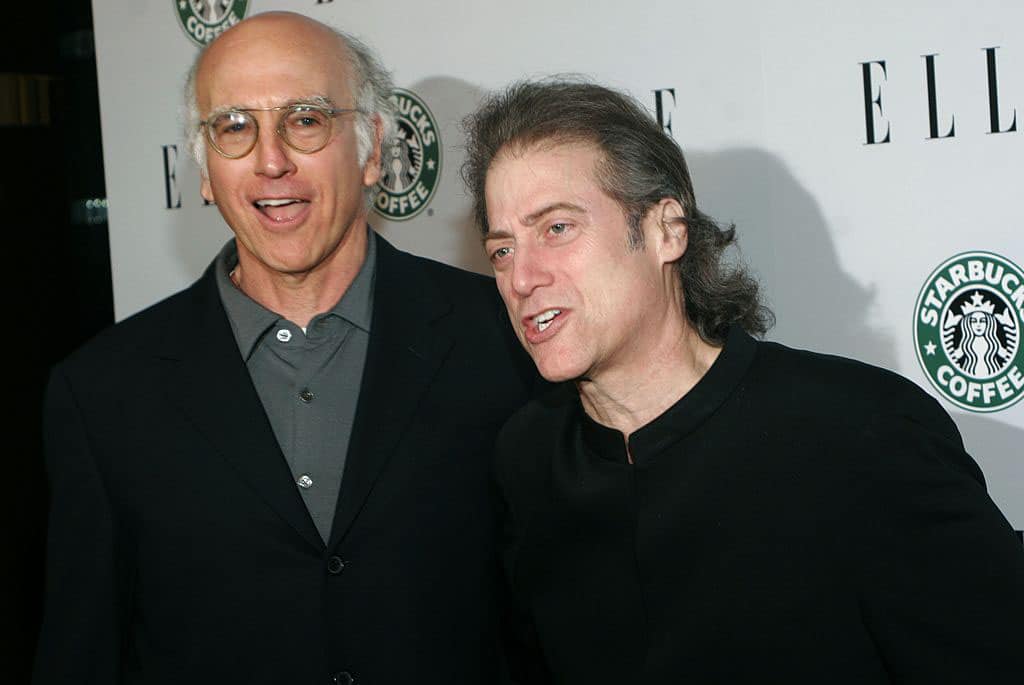
They had known each other since they were 12, but it would be incorrect to call them childhood friends. “I went to the sports camp, which was very famous in New York State, and he was there, Larry, a gangly, despicable human being, annoying, I hated him,” Lewis said. “Usually when you meet somebody to camp, we say, ‘Hey, maybe our parents will drive us into Manhattan. We’ll go to Radio City and see ‘Ben Hur’ or some shit. We’re 12, as my mother would say, ‘that’s Z on my list!’ The last thing I would ever do was see this f–ing guy. He annoyed me that much. And vice versa. So I became a comic first, and he was a real fan. He liked me. He liked me. Then he became a comic, and I heard about him. I went, ‘whoa, what a f–ing brain this guy’s got.’ So he helped me move out of my college girlfriend’s apartment. We were inseparable. Every day I saw him, I performed every day, two or three sets a night everywhere.’”
The day that David invited Lewis to play himself on the HBO show “Curb Your Enthusiasm” led to one of the most enduring legacies of Lewis’ half-century in comedy. As of this writing, Lewis has had 40 appearances on “Curb,” including the pilot episode in 1999. Other notable episodes include:
“The Larry David Sandwich” Season 5, Episode 1: Richard is upset that a sandwich at a deli they frequent was named after Larry. They end up bickering in the pews at Rosh Hashanah services.
“Shaq” – Season 2, Episode 8: The episode can also be called, “Larry and Lewis go to a Lakers game and sit way too close for such big mouthed New Yorkers.”
“The Baptism” – Season 2, Episode 9: Lewis confronts David at his office to tell him, “You stole my outgoing message on my answering machine.”
“Foisted” – Season 9, Episode 1: Lewis’ parakeet passes away and Larry sent his “heartfelt” condolences via text. Lewis confronted David by saying, “I don’t care about your f—ing play, because my bird died and you sent the most ridiculous, despicable text: ‘Sorry about the bird, the good news is I’m still alive.’ Prick!”
“Lewis Needs a Kidney” – Season 5, Episode 5: Lewis, in need of a kidney transplant, is miffed that Larry has to think for a whole day about whether he wants to even get tested to see if he’s a match to be a kidney donor to save his friend’s life.
Lewis appeared as recently as episode four of season 12, which aired only two days before his death. In the previous episode, Lewis, who in real life was diagnosed with Parkinson’s disease in April of 2023, informs David that he put David in his will.
Lewis: “When I die, I want you to know how much I cared about you”
David: “I’m not going to keep it, I’m going to give it to charity.”
Lewis: “You’re my best friend, you’re getting it.”
David: “No I’m making a Sherman-esque statement about the will right now.
Lewis: “Listen to you and your historical references.”
David: “If nominated I will not run, if bequeathed, I will not accept.”
Lewis: Well I’m bequeathing.”
David: “Well I’m not accepting.”
Lewis: “Well you’ll have to accept.”
David: “Don’t give it to me!”
Lewis: “Don’t hurt my feelings.”
David: “I’m not going to keep a penny of it.”
Lewis: “You’re hurting me.”
David: “Thank you but I don’t want it.”
Lewis: “I’m giving it to you anyway, pal.”
David: “Oh my G-d, f— you.”
Six episodes of “Curb” remain to be released as of this writing. The cast and crew are tight lipped as to whether Lewis will have a posthumous appearance. Still, David released a fitting tribute to his friend this week.
“Richard and I were born three days apart in the same hospital and for most of my life he’s been like a brother to me,” David wrote on the “Curb Your Enthusiasm” Instagram account. “He had that rare combination of being the funniest person and also the sweetest. But today he made me sob and for that I’ll never forgive him.”
Lewis is survived by his wife of 19 years, Joyce Lapinsky.
